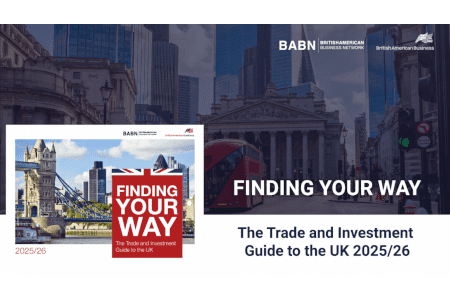On the 31 March 2023, the British Prime Minister announced that the UK is to join the CPTPP. ITM Managing Editor Rebecca Spayne investigates the deal and what it means
Britain has struck a deal to join the Comprehensive and Progressive Agreement for Trans-Pacific Partnership (CPTPP), a vast free trade area of 11 countries spanning the Indo-Pacific. The British Prime Minister, Rishi Sunak, announced the completion of the deal on the 31 March. The historic agreement follows two years of intense negotiations by the Department for Business and Trade and puts the UK at the heart of a dynamic group of economies, as the first European member, and first new member since the trade partnership was created.
This is the biggest international trade deal for Britain since Brexit. The UK would have been unable to join the CPTPP as a member of the EU, demonstrating how the UK is seizing opportunities of these new post-Brexit trade freedoms to be able to drive growth across the nation.
What is the CPTPP?
The Comprehensive and Progressive Agreement for Trans-Pacific Partnership is a trade agreement among Australia, Brunei, Canada, Chile, Japan, Malaysia, Mexico, New Zealand, Peru, Singapore and Vietnam. This evolved from the Trans-pacific Partnership (TPP), which was never ratified due to the withdrawal of the United States. The US was negotiating to join under President Obama but was axed by President Trump on his first day in office in 2017. The remaining countries continued talks, and eventually signed the CPTPP at the formal signing ceremony in Santiago, Chile in March 2018.
The eleven signatories have combined economies representing 13.4% of global gross domestic product, at approximately US$13.5 trillion, making the CPTPP one of the world’s largest free-trade areas by GDP. The trading block is home to more than 500 million people, and once the UK formally joins, it is estimated that it will be worth 15% of global GDP.
CPTPP covers virtually all sectors and aspects of trade between member countries to reduce trade barriers and facilitate trade. The CPTPP gives signatory countries greater access to one another’s markets and reduced tariffs on trade on the vast majority of items. Tariffs remain on some particularly sensitive areas to some countries, such as Japan’s rice industry. In return, countries cooperate on regulations and standards. These slashed tariffs have encouraged significant shifts in global supply chains and encouraged increased trading.
The UK’s involvement
In January 2018, the Government of the UK stated publicly that it was exploring membership of the CPTPP to stimulate exports after Brexit and had held informal discussions with several of its members. In June 2020, the government of the UK issued the policy paper “An update on the UK’s position on accession to the Comprehensive and Progressive Agreement for Trans-Pacific Partnership (CPTPP)” reaffirming the UK’s position on joining the CPTPP. There were three reasons given for this:
- Securing increased trade and investment opportunities that will help the UK economy overcome the unprecedented challenge posed by coronavirus. Joining CPTPP would open up new opportunities for exporters in strategically important sectors, helping to support an industrial revival in the UK.
- Second, to help diversify the UK’s trading links and supply chains, and in doing so, increase the economic security at a time of heightened uncertainty and disruption in the world.
- The third is to help the UK secure their future place in the world and advance longer-term interests. CPTPP membership is an important part of the UK’s strategy to place the nation at the centre of a modern, progressive network of free trade agreements with dynamic economies. In doing so they aimed to turn the UK into a global hub for businesses and investors wanting to trade with the rest of the world.
On 1 February 2021, the UK formally applied to join CPTPP, becoming the first non-founding country to apply to join the trading bloc. When successful, the UK would become the second largest CPTPP economy, after Japan. In June 2021, the CPTPP states agreed to open accession talks. A working group was established to discuss tariffs and rules governing investment and trade. The United Kingdom was not expected to enter the trade bloc until 2022 at the earliest.
As of March 2023, the United Kingdom is set to join the CPTPP as all 11 members of the trading bloc had agreed to its accession. Each of the existing member nations will need to ratify the UK’s addition to the partnership before it takes effect.
How will this impact the UK?
Joining the CPTPP will bring a range of benefits to the United Kingdom. The UK Government released a document that outlines the top 10 benefits of joining the CPTPP for the UK.
- A gateway to growth – CPTPP is a gateway to the wider Indo-Pacific region, which will account for the majority of global growth and around half of the world’s middle-class consumers in upcoming decades. Joining the trading bloc will strengthen ties with some of the world’s most dynamic economies, with a combined GDP of £11 trillion once the UK joins. Joining puts the UK at the heart of a dynamic group of sovereign countries, including Vietnam, which is predicted to be one of the fastest growing economies in the next decades.
- Opening new markets for UK services providers – CPTPP is one of the most modern trade agreements in the world, with ambitious services provisions. The UK already sells more services than goods to CPTPP members, worth £31.9 billion. The red tape will be slashed, and UK businesses will be operating on a par with local firms, bringing benefits to the UK businesses like greater certainty around licensing procedures and ensuring independent and impartial regulators.
- Data flows – Digital trade is creating a new global economy, with remotely delivered services from the UK to CPTPP worth £20.5 billion in 2020. Data flows are vital for modern trade, enabling everything from more efficient manufacturing and supply chains to more reliable infrastructure. Joining CPTPP will help remove the barriers UK companies face like data localisation requirements, ensuring data can flow between the UK and CPTPP members.
- Cutting tariffs on goods exports – Over 99% of UK goods exports to CPTPP member countries will be eligible for zero tariffs, improving goods market access for British firms. Businesses selling key UK exports such as cars and machinery will benefit from the removal of tariffs. In the long run, joining CPTPP could lead to a £1.7 billion boost to UK exports to other CPTPP countries. The removal of tariffs should also help UK businesses be more competitive and reach CPTPP’s vast consumer base.
- New opportunities from diversifying supply chain – Diversifying British supply chains will give businesses the ability to increase economic resilience by deepening trading links across the Asia-Pacific and Americas. Modern ‘rules of origin’ should make British businesses more competitive by allowing them to trade more freely across the bloc and take advantage of new export opportunities.
- Benefitting the whole of the UK – CPTPP will support jobs and create opportunities for UK businesses in every part of the UK. Total UK exports to CPTPP countries were worth £60.5 billion in the 4 quarters to the end of Q3 2022. Joining the bloc will help companies reach new markets through CPTPP’s ambitious services and digital provisions.
- First time trade deal with Malaysia – CPTPP goes above and beyond the existing FTAs that the UK has with most CPTPP members. Joining CPTPP means the UK will have a trade deal with Malaysia for the first time. This will give UK businesses much better access to an economy worth £271 billion in GDP in 2021, which will support jobs across key sectors in the UK and could boost services exports to Malaysia which were worth £1.4 million in the 4 quarters to the end of Q3 2022.
- More access to high-quality consumer goods – As a member of a bloc where most goods imports are eligible for zero tariffs, consumers and businesses could benefit from better choice, quality and affordability. This should include cheaper import prices for high-quality consumer goods. It could also lead to cheaper import prices for inputs to manufacturing with tariffs eliminated on a wide range of inputs, including machinery and chemicals. Greater access to global supply chains is an important source of competitive advantage for businesses.
- Strengthening economic security – The UK is helping to ensure its future economic security by joining one of the world’s most dynamic trading blocs while protecting their authority. As CPTPP grows, the UK will help shape its development to fight unfair and coercive trading practices that threaten the future of international trade. British businesses will benefit from enhanced access to more markets while trading under fair rules that allow them to compete and thrive on the global stage.
- Encouraging investment – In 2021, the level of investment from CPTPP countries in the UK was around £182 billion, accounting for at least 9% of the total UK inward investment. Investment from CPTPP countries supported the creation of over 5,000 new jobs in 2021/2022. Being a member of CPTPP encourages further investment by guaranteeing protections for investors and supporting jobs across the UK. CPTPP’s rules will help protect UK investors from unfair, arbitrary or discriminatory treatment and enable them to access a modern, transparent dispute settlement mechanism in case these rules are broken.
Rishi Sunak, Prime Minister, commented on this trade development: “We are at our heart an open and free-trading nation, and this deal demonstrates the real economic benefits of our post-Brexit freedoms. As part of CPTPP, the UK is now in a prime position in the global economy to seize opportunities for new jobs, growth and innovation. Joining the CPTPP trade bloc puts the UK at the centre of a dynamic and growing group of Pacific economies, as the first new nation and first European country to join. British businesses will now enjoy unparalleled access to markets from Europe to the south Pacific.”
Kemi Badenoch, Business and Trade Secretary said, “This is an important moment for the UK. Our accession to CPTPP sends a powerful signal that the UK is open for business and using our post-Brexit freedoms to reach out to new markets around the world and grow our economy. Joining CPTPP will support jobs and create opportunities for companies of all sizes and in all parts of the UK. It is about giving British businesses improved access to the countries that will be gateway to the wider Indo-Pacific region which is projected to make up the majority of global growth in the future.”
Reacting to the news that the UK has joined The Comprehensive and Progressive Agreement for Trans-Pacific Partnership (CPTPP), Marco Forgione, Director General of The Institute of Export & International Trade (IOE&IT), said: “We welcome the news of the UK’s imminent accession to CPTTP. This agreement not only reduces trade tariffs for goods, but also sets new rules in areas such as services, investment, intellectual property, digital trade and advanced manufacturing.
This is all good news for UK businesses, giving them greater access to one of the fastest growing regions in the world, accounting for around 13% of global GDP. It will also enhance our ties with countries we already have trading partnerships with, building more resilient supply chains between nations.
There are pioneering provisions to support growth of trade in services, particularly with regards to digital and mobility unlocking vast new potential for cross-border trade and investment. Advanced manufacturing opportunities will present a huge source of innovative development.
The addition of the UK into the CPTPP signals to the world that the core values of liberalised rules-based trade as a vehicle for good will continue to underpin international trade in the future.
We look forward to supporting both our members and the wider trading community in the CPTPP bloc to maximise the opportunities that this partnership will undoubtedly present.”
As the biggest trade deal since Brexit, the UK joining the CPTPP is a massive step, and it seems, will have a great amount of benefits for the United Kingdom. The impacts of Brexit were catastrophic for UK trade, so this brand-new trade deal which has amazing perks, will hopefully improve UK trading, and business within the country.
Read more news and exclusive features in our latest issue here.
Never miss a story… Follow us on:
International Trade Magazine
@itm_magazine
@intrademagazine
Media Contact
Joseph Clarke
Editor, International Trade Magazine
Tel: +44 (0) 1622 823 920
Email: editor@intrademagazine.com





